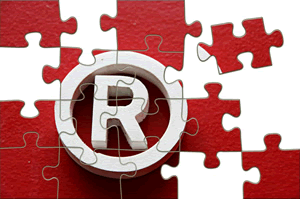Counterfeit Mark
What does Counterfeit Mark mean?
A counterfeit mark is a word, name, symbol, or combination of those elements designed to be indistinguishable from a legitimate trademark and used in the sale or distribution of goods or services.
For a mark to be rule counterfeit in a court of law in a trademark infringement case, there are seven attributes that the plaintiff must prove. First, the mark must not be the genuine mark in use as authorized by the trademark owner. Second, the user of the counterfeit mark must use the mark in the sale or distribution of goods or services. Third, the mark must be similar enough to the legitimate trademark such that the two are virtually indistinguishable from one another. Fourth, the owner of the genuine mark must have registered it properly with the United States Patent and Trademark Office. Fifth, the genuine mark must be in use. Sixth, the user of the counterfeit mark must use it in marketing the same goods and services marketed under the genuine mark. Seventh, the user of the counterfeit mark must use it to cause confusion or deceive those who may purchase the goods or services.
When a trademark infringement case involves the use of a counterfeit mark with the defendant having knowledge that the mark is counterfeit, the Trademark Trial and Appeal Board may award treble damages to the plaintiff.
Related Pages
Trademark Law Attorneys near
Term of the Day
Abuse of a child
Abuse is any act against a child which results in death, serious physical or emotional harm, or sexual abuse.
Category: Adoption


